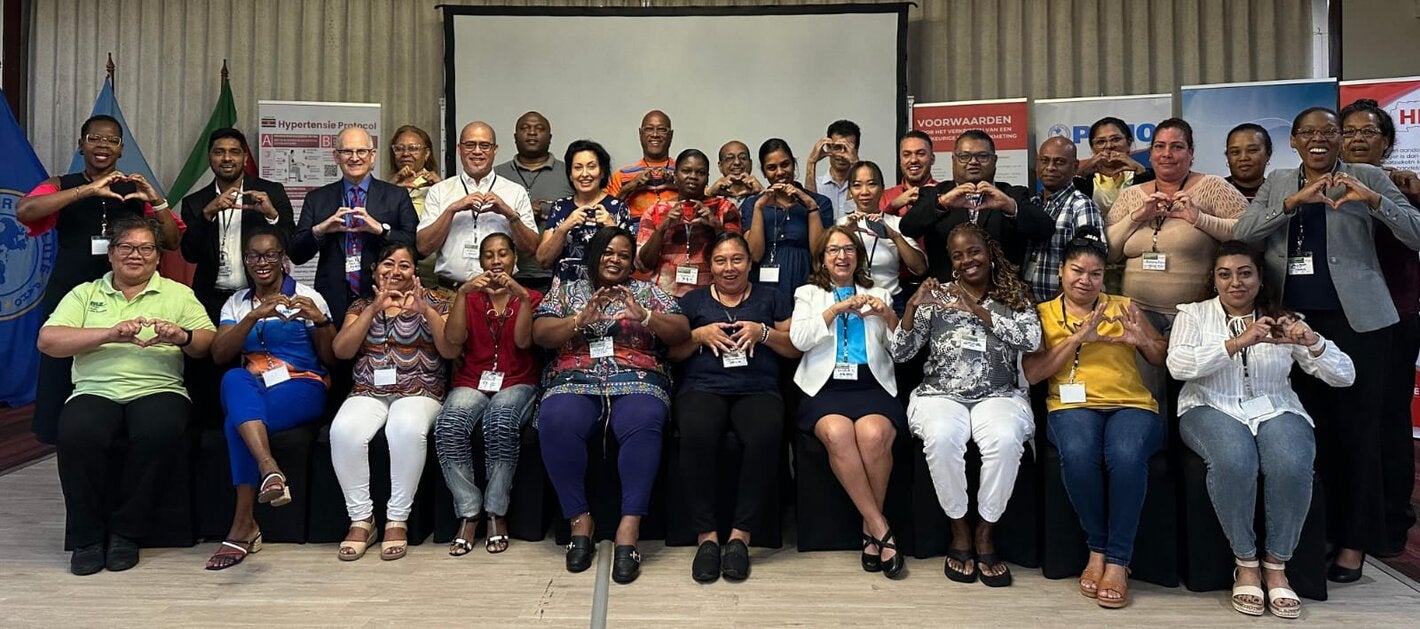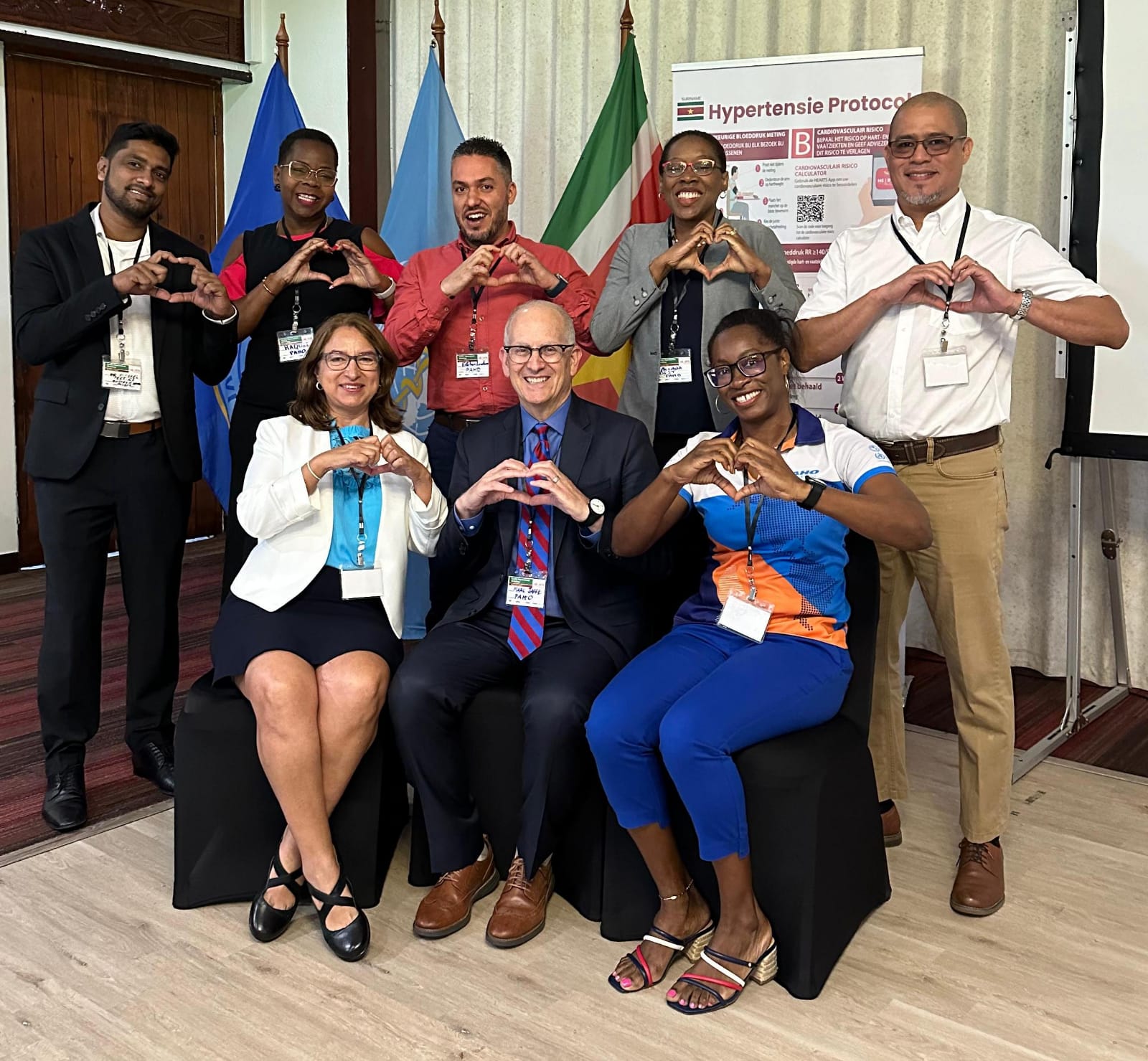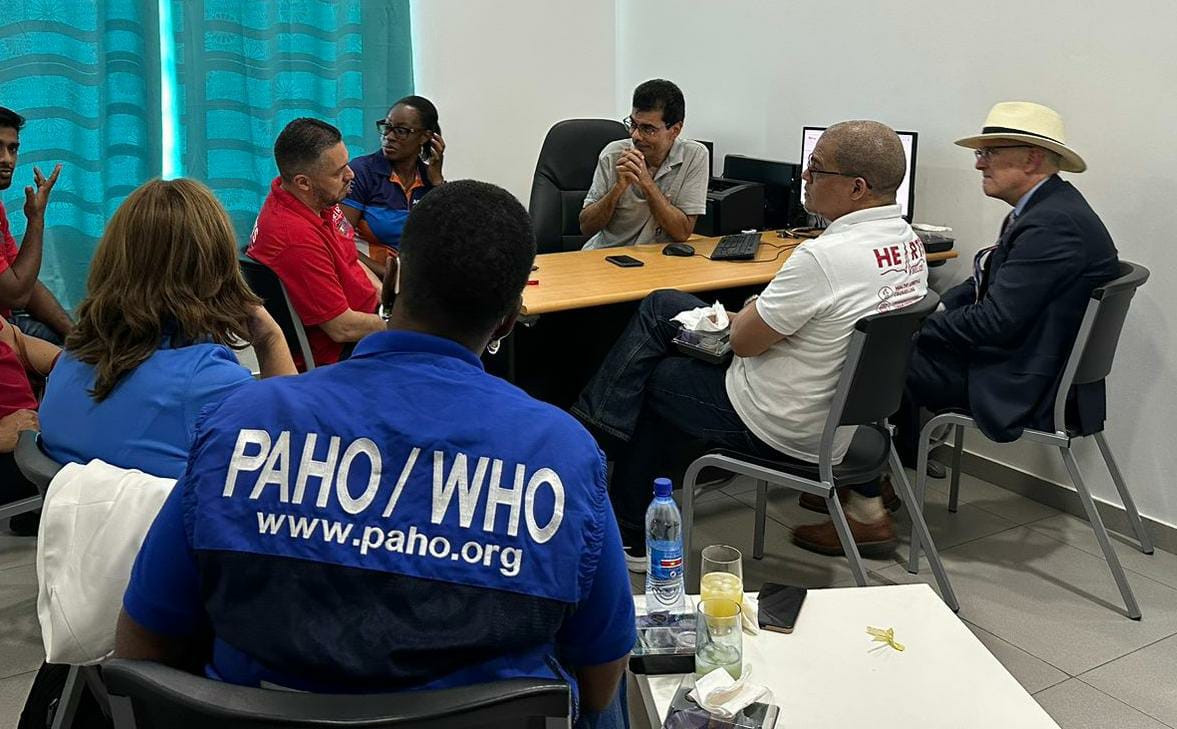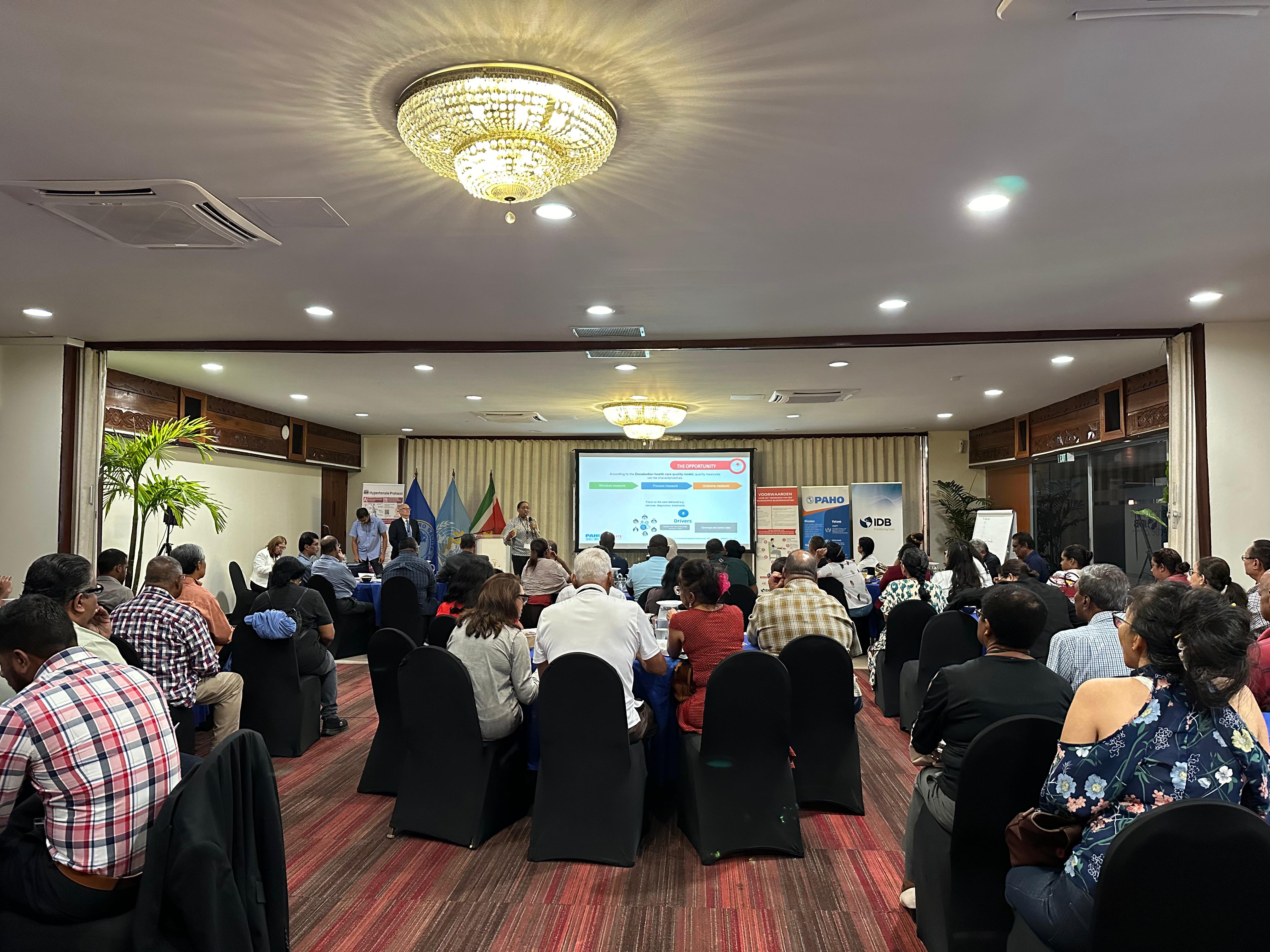
Paramaribo, Suriname, August 29-31, 2024 (PAHO) – Suriname is making significant strides in improving healthcare through the HEARTS in the Americas Initiative, which focuses on which focuses on cardiovascular disease (CVD) prevention. In January 2022, Suriname joined 32 other countries in the Region of the Americas in the implementation of HEARTS, which aims to enhance the management of hypertension at health clinics. HEARTS is a continuous quality improvement program that uses hypertension control as an entry point to strengthen primary healthcare and comprehensively addresses CVD prevention.
Cardiovascular diseases are a major health concern in Suriname, responsible for approximately 33% of all deaths, and the main modifiable cause is hypertension with approximately 43% of adults (30-70 years) estimated to have this condition. Addressing this issue is crucial for improving the overall health of the population.
The Ministry of Health with the support of the Pan American Health Organization (PAHO) and the Inter-American Development Bank (IDB), has been promoting the implementation of the newly revised and adapted HEARTS clinical pathway, which is a decision support tool and includes the protocol for accurately measuring blood pressure and a standardized treatment protocol. Furthermore, the Ministry has implemented a real-time monitoring tool in which the CVD risk can be assessed.
To support this effort and improve the Quality of Care, the Ministry of Health invited the team of experts from the Pan American Health Organization / World Health Organization (PAHO/WHO) to visit Suriname to provide technical support for the implementation of the HEARTS Initiative. Their mission included organizing a workshop to improve healthcare quality and training sessions for both public and private health practitioners.
The delegation included experts from the three levels of PAHO: Regional, Caribbean Subregional Program, and selected Caribbean Country Offices and lead HEARTS implementers from Caribbean countries: Barbados, Belize, Guyana, Trinidad and Tobago.
During their weeklong visit, the experts toured clinics in coastal (public and private) and remote areas to see how the HEARTS program is being implemented. These visits helped identify areas needing more support and highlighted the importance of ongoing training and information sharing.
The goal of the HEARTS Initiative is to become the national strategy for preventing and controlling CVD by improving care for high blood pressure and diabetes. The program focuses on the use of clinical pathways, continuous quality improvement and the use of monitoring and evaluation systems.
The ultimate objective is to promote the HEARTS Initiative as a national approach to tackling cardiovascular disease by improving the quality of care for hypertension and diabetes in all primary healthcare services in Suriname by adopting the HEARTS clinical and managerial tools.
With the support of the main stakeholder and health care providers, the Ministry of Health is working diligently to implement the interventions under the HEARTS Initiative while ensuring all persons have access to effective noncommunicable diseases (NCD) care.
The Pan American Health Organization (PAHO) and the World Health Organization (WHO) are committed to supporting Suriname’s Ministry of Health in these efforts to enhance the country’s healthcare system. This collaboration aims to ensure that Suriname can effectively manage and reduce the prevalence of hypertension and other cardiovascular diseases, ultimately improving the health and well-being of its citizens and set a foundation for PAHO’s new Better Care for NCDs Initiative.
“This innovative strategy transforms health systems, standardizes treatment, and strengthens integrated NCD management. Using the available set of innovative tools to operationalize the implementation of an integrated approach to hypertension and CVD risk management within the framework of the Chronic Care Model, is highly recommended.
If we want to achieve greater effectiveness in programs and interventions on NCDs and address its health inequities, it is imperative that the health sector shift the paradigm from the traditional health care model to a quality chronic care model. So, it’s essential to strengthen the health sector’s capacity to implement this guidance.” – PWR Yafflo Ouattara
“I’m happy and appreciative that you – all the people present today - are sacrificing your time and putting in your efforts to be present. We share a common goal, elevating and improving the health sector of Suriname. Use this opportunity and let’s continue to work together!’ – Director of the Ministry of Health Dr. Rakesh Gajadar Sukul.






